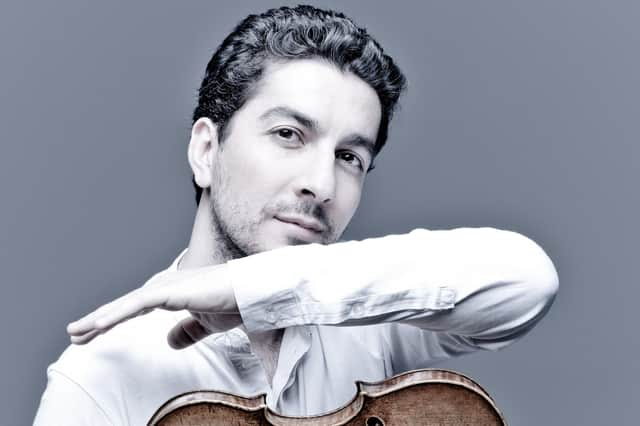Ulster Orchestra: Soloist Sergey Khachatgryan is stunning on difficult Shostakovich Violin Concerto


It began quietly, reached some loud climaxes and then disappeared quietly, as if there had been little purpose to this offering which went round in circles without any obvious conclusion.
It was one of the less impressive concert-openers of this season.
Advertisement
Hide AdAdvertisement
Hide AdThe same cannot be said of the Shostakovich Violin Concerto No 1, a truly extraordinary piece by this composer who was constantly under the threat of imprisonment or worse in the repression of Soviet Russia, so much so that this work was only allowed to be performed in 1955, some two years after the death of the monstrous Stalin.
It was performed last Friday with the mesmeric skill of the Armenian soloist Sergey Khachatgryan who gave a sublimely impressive reading of this difficult work.
He was particularly compelling in the long cadenza of the third movement, which became almost a lament for the brutality of Russian violence past, and all too present.
This was followed by a haunting encore based on an Armenian folk tune.
Advertisement
Hide AdAdvertisement
Hide AdThe second half was taken up with Brahms’ First Symphony which, after an adjustment from the echoes of the very different Shostakovich, grew in stature under Rustioni’s inspired direction which highlighted every nuance to reach the magnificent hymn-like climax of the final movement.
After two decades of self-doubt this symphony established the composer not as the next Beethoven, but as the first Brahms – and the rest is history.
The concert programme stated that the orchestra, chief conductor and soloist had performed much the same programme, but with Brahms' Fourth Symphony and not his First, only three days earlier in the famous Brucknerhaus in Linz.
Much more should have been made known to a wider public back home about this prestigious European engagement.
The Ulster Orchestra Board could and should do much more on special occasions to blow their own trumpet in public and not leave it all to the players.